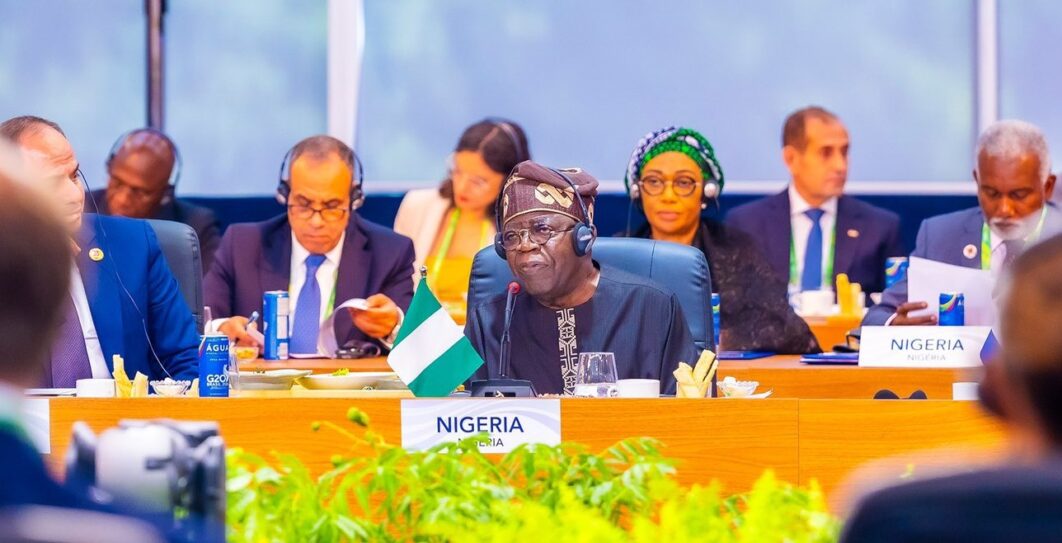
The 19th Heads of State and Government Summit of the Group 20 (G20) was held at the Museum of Modern Art in Rio de Janeiro, Brazil, from November 18 to 19 2024. The G20 is an intergovernmental forum comprising 19 sovereign countries, the European Union (EU) and the African Union (AU).
The countries are Argentina, Australia, Brazil, Canada, China, Germany, France, India, Indonesia, Italy, Japan, the Republic of Korea, Mexico, the Russian Federation, Saudi Arabia, South Africa, Turkey, the UK, and the United States.
It is the premier forum that plays an important role in shaping and strengthening global architecture and governance in all major international economic issues. The member states have the largest economies in the world. They represent around 85 per cent of the global GDP, over 75 per cent of the global trade, and about two-thirds of the world population.
The 2024 summit theme is ‘Building a Just World and a Sustainable Planet’. Interestingly Brazil, a Latin American country, hosted the summit. And also a member of BRICS, a new inter-governmental economic bloc comprising Brazil, Russia, India, China and South Africa , “built on the principles of mutual respect, sovereign equality, inclusiveness, consensus and strengthened collaboration.’’
Brazil is hosting this year’s summit now, the Latin American countries are expressing concern about “unlawful measures’’ such as sanctions, which are seen as damaging to the global economy and worldwide sustainable development goals.
In fact, the Latin American experience with sanctions has mostly been as sanctioned states rather than targeting states. The continent lacked interest in using sanctions tools because of the historical evolution of their nationhood, which nurtured a set of values rooted in the defense of national sovereignty, and opposition to any foreign intervention. So Latin American countries tend to rely on diplomacy, and negotiation conducted under international principles.
This underscores the wider challenge that the U.S., the EU, and its informal Group (S7) of industrialised economies are facing in getting Latin American countries on their side when BRICS are increasingly becoming influential. The “mythical threat from the East’’ that was used by the United States to integrate Europe into its world order and maintain its hegemony in the world no longer works.
But the G20 is a multilateral format where members have different viewpoints. Observers say that the U.S. on these grounds will continue to mount pressure on some countries for support as a number of them prefer to stick to their independent sovereign point of view.
Nations of the Global South are now asserting their independence on world issues. The Brazilian President, Lula da Silva, rattled his hosts by denouncing the current system of “world governance’’ for being incapable of addressing the vital needs of developing nations. He pointed out that the current model of global governance is not working, that it perpetuates asymmetries, increases instability, and diminishes opportunities for developing countries.
The Israel-Palestine conflict, he said, is one more confirmation that the United Nations Security Council is not responding to the current challenges for peace and security. And that the U.S. and the North Atlantic alliance don’t respect the UN Charter.
In the last five years, Social democrats have been in power in Latin American countries of Mexico, Bolivia, Peru, Chile, Colombia, and Brazil. These countries had long been dominated by the imperialist Monroe doctrine, a U.S. foreign policy framework addressing America’s security and commercial interests in the Western hemisphere.
These countries are now freeing themselves from the yoke of that doctrine through the revival of deep-rooted social democracy in a continent, long brutally suppressed by right-wing dictators and juntas with the support of the U.S. This is why the continent is in the BRICS or rather moving away from the United States, its historical overlord.
According to Western Analysts, the BRICS can offer economic incentives for the development of Latin American countries. The long history of suffering and repression during the U.S. hegemony has shown that Latin American countries seize every opportunity to achieve stability and prosperity.
The G20 Leader summit was established in response to the global financial crisis that occurred in the wake of the collapse of the Lehman Brothers financial services firm in 2008. The existing G20 meeting of Finance Ministers and Central Bank Governors was upgraded to the head of state level, and the inaugural G20 summit was held in Washington in November 2008. From then on, summit meetings were held semi-annually until 2010, and annually from 2011 onwards.
The economic group consists of two parallel tracks: the Financial Track and the Sherpa Track. Finance Track is led by Finance Ministers and Central Bank Governors of member states. Sherpa Track is coordinated by Sherpas of member countries who are the personal emissaries of the leaders and they oversee negotiations over the course of the year, discussing agenda items for the summit and coordinating the substantive work of the G20.
The Engagement Group brings together civil societies, parliamentarians, Think Tanks, women, youth, labour, business, researchers of the G20 countries. The summit marks the culmination of efforts undertaken by the country holding the group’s rotating presidency. It is a moment for the world leaders to endorse agreements negotiated throughout the year and chart a course for tackling global challenges.
Ministers from the G20 countries will this year reportedly discuss extreme heat in the world at the final meeting of the Disaster Risk Reduction. The final document of the group’s Finance and Health ministerial meeting highlights fighting inequalities and preparing for future pandemics, according to reports. The ministers are said to have reached consensus on joint action against global corruption as corruption exacerbates inequalities and drains resources from the most vulnerable.’’
Okoba wrote from Lagos.






